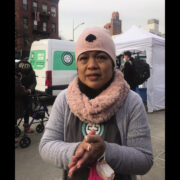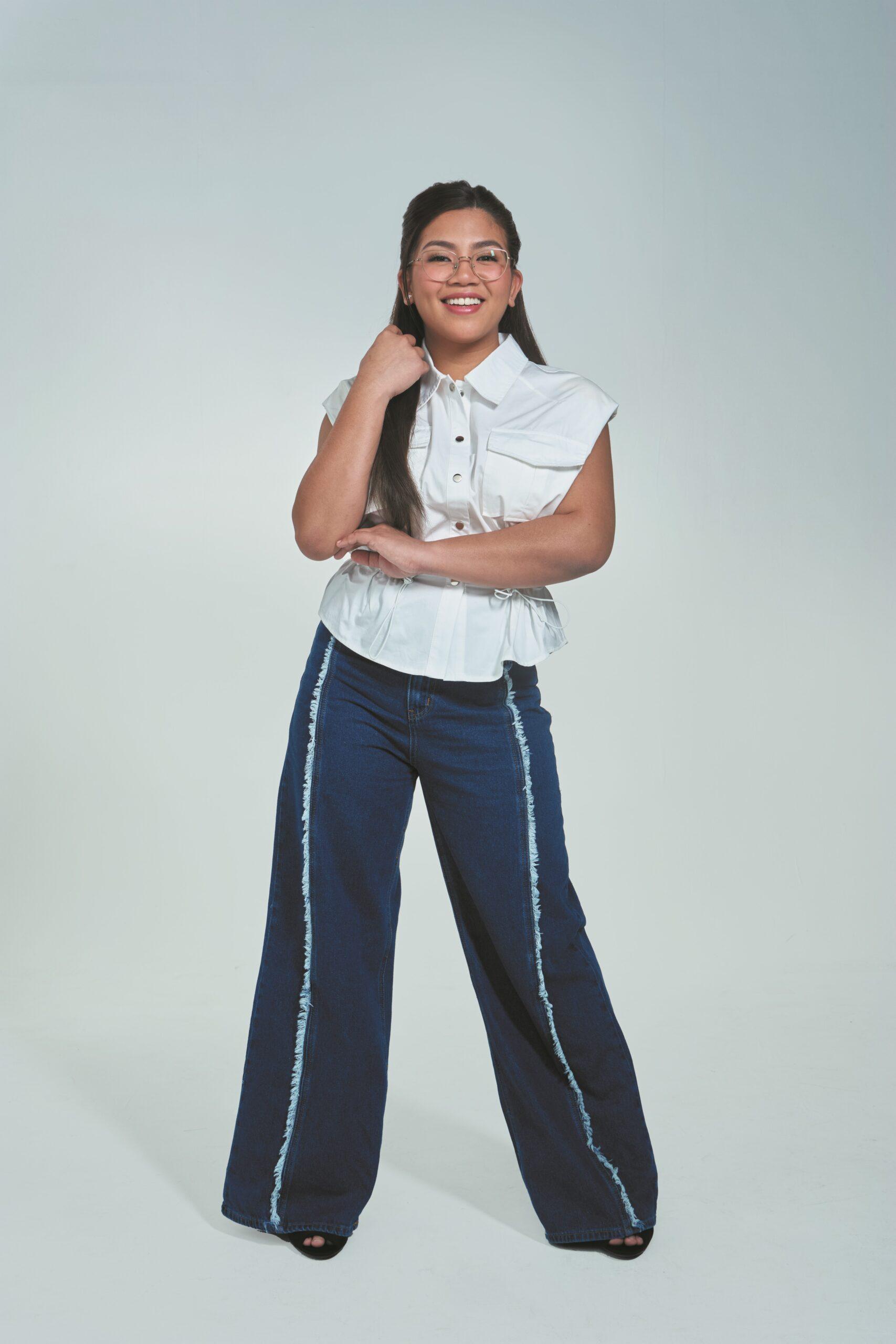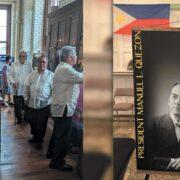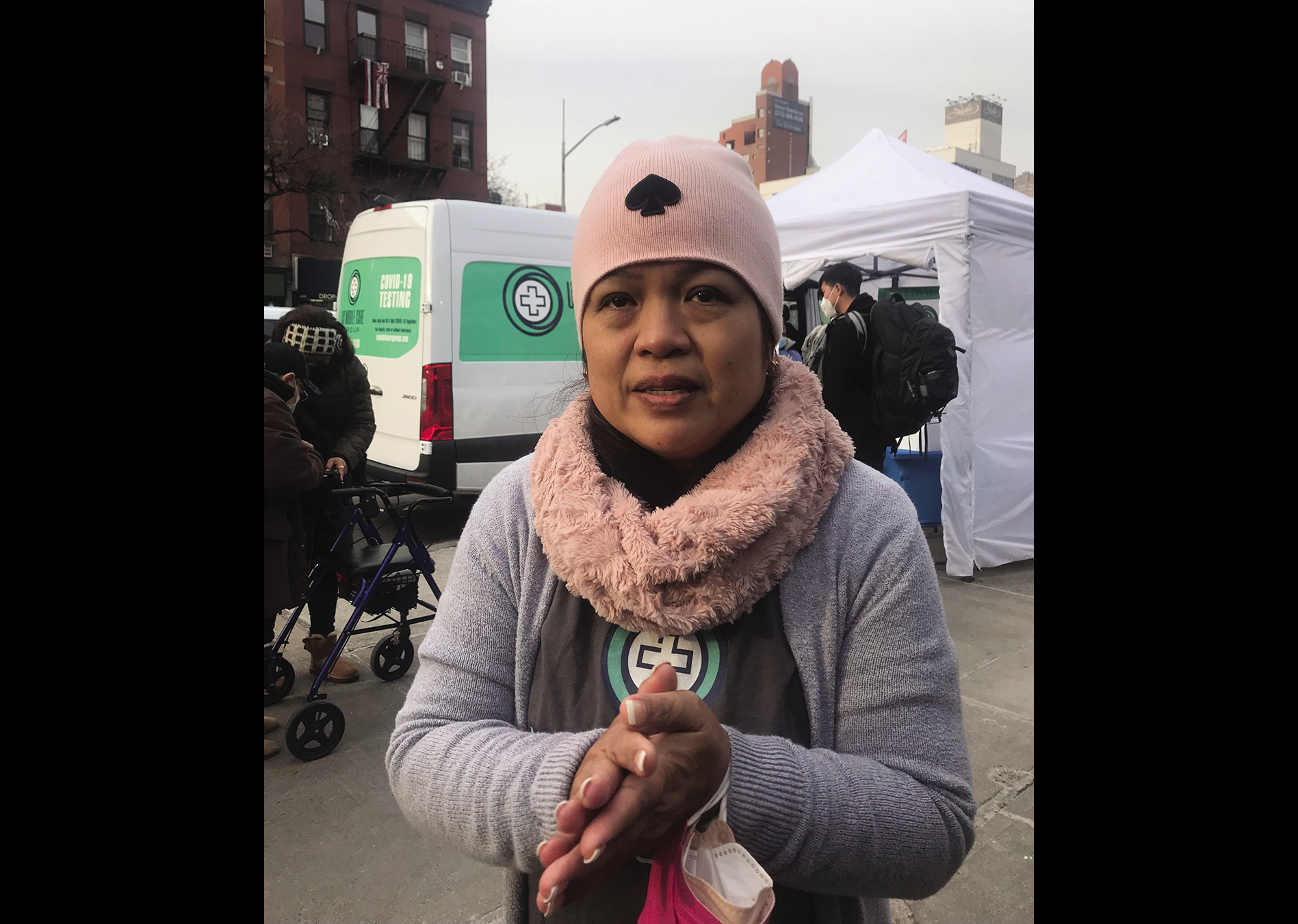
Filipino American doctor and businesswoman Jona Jane Tajonera lost her older sister Gina to COVID-19 in April 2020. Back then, coronavirus was well on its way to wreak havoc in New York City and make it the epicenter of the pandemic’s first wave.
Tajonera felt helpless. As a public health advocate (she holds both a Masters and a Doctorate in Public Health), she thought she could have done something to at least help her sister. She slipped into depression until she realized that more and more people were getting affected.
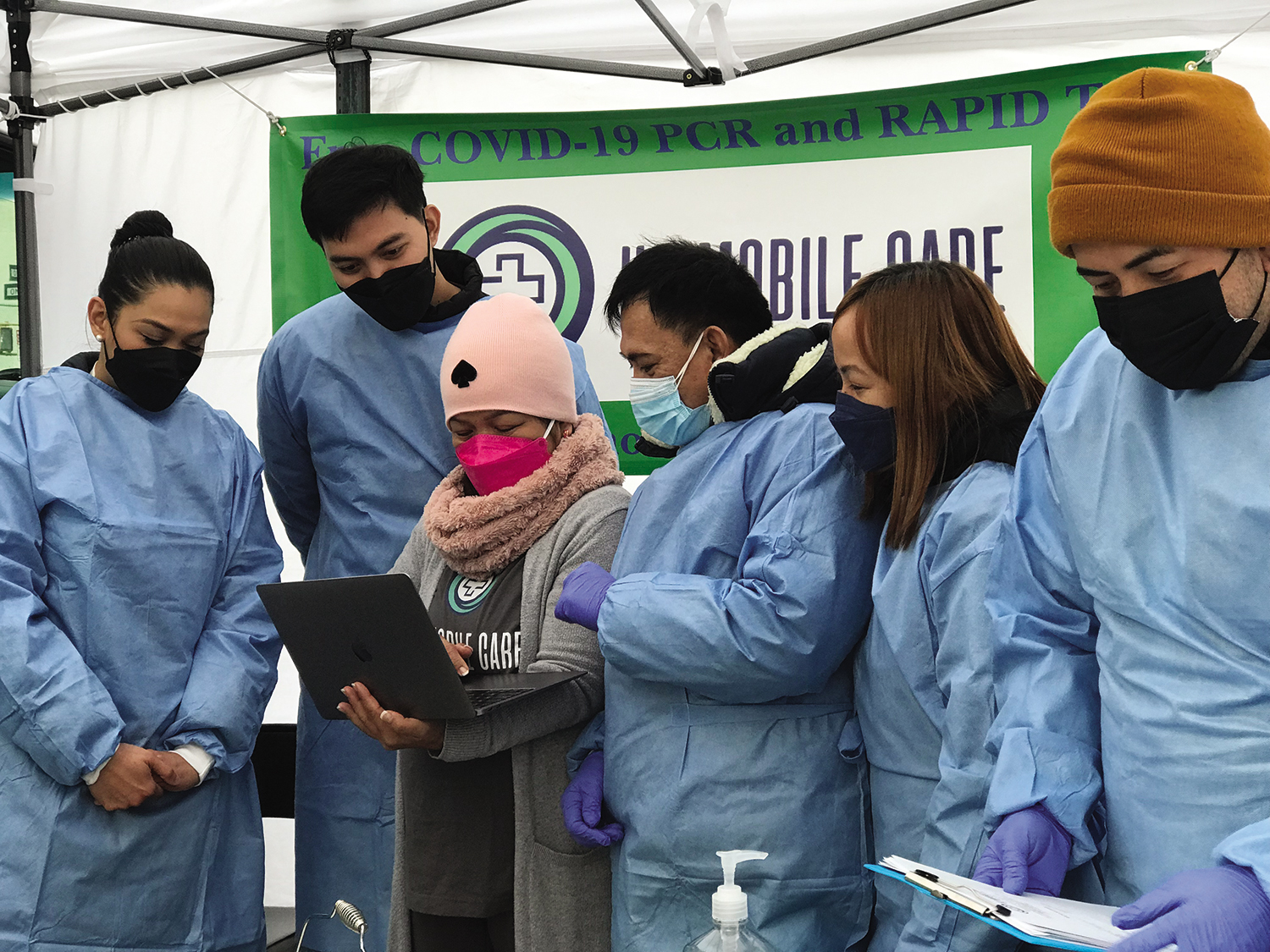
She began talking to some of her friends in the medical industry – doctors, lab technicians, nurses. She wanted to learn more about the virus and what she can do and realized that there was a need for testing.
Tajonera’s U.S. Mobile Care Group started to run mobile COVID-19 testing sites by setting up tents. Among her first locations were in Queens and the Hell’s Kitchen neighborhood of Manhattan, providing free tests to the underserved communities in the area.
Almost a year later, around May 2021, she saw the slowdown and entertained the thought of stopping the tests. People were getting vaccinated and the infections began to dip. Less than a couple of months later there was another uptick.
“At that point, I looked at the data and realized that no, this is not going away,” she shared.
Armed with this knowledge, Tajonera got a van so she and her team could go to more underserved neighborhoods in the city. The response was good, so she decided to get another one.
Little did she know, she had turned a bad memory into a good and inspiring thing.
Today, U.S. Mobile Care Group has four vans and runs 22 testing sites providing free RT-PCR and rapid antigen testing around New York City to anyone who needs it. During the peak last month, they were testing up to 500 people per site daily.
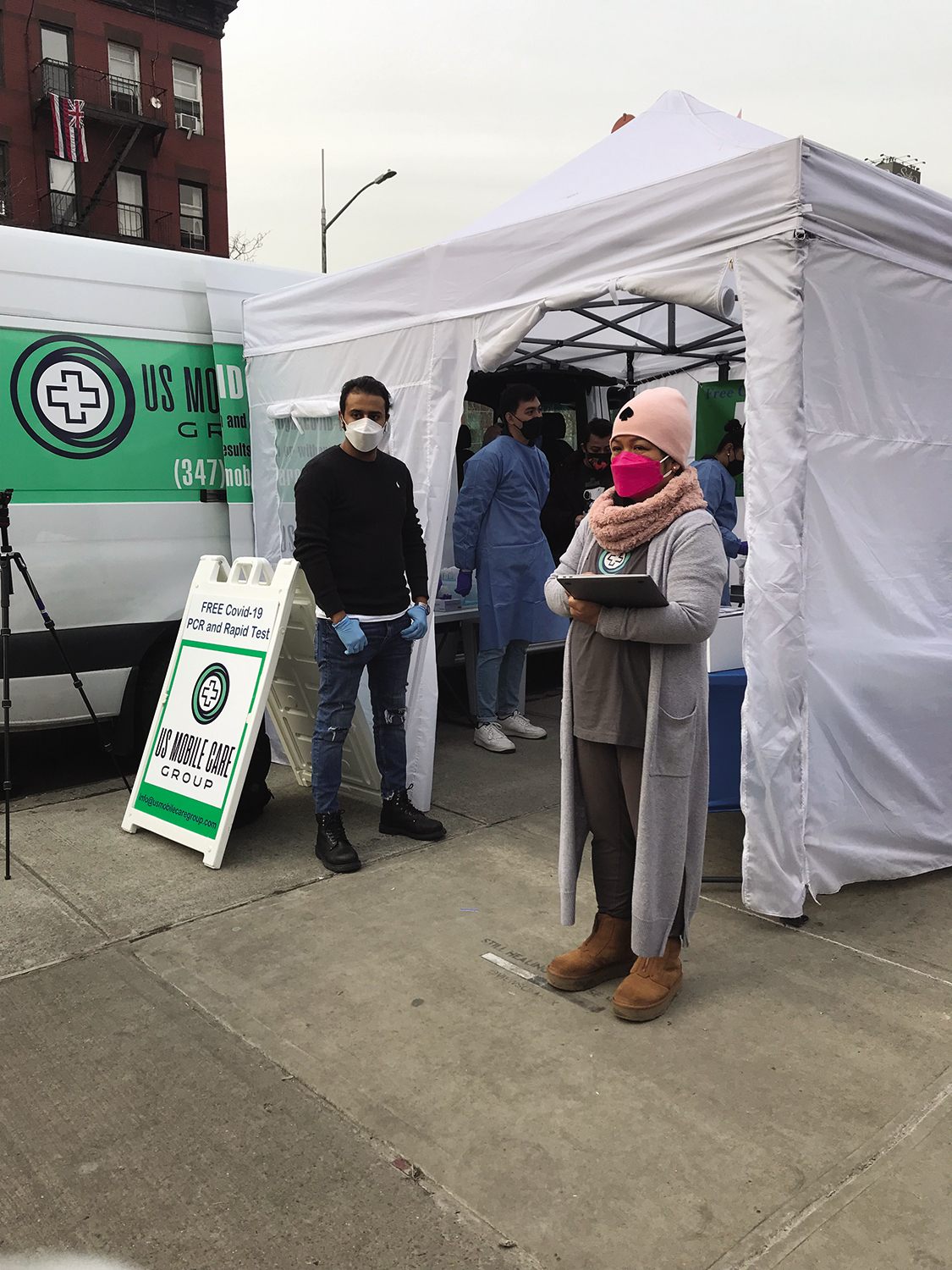 She has partnered with Steinway Hope Medical, also a Filipino-owned primary care provider, and put together an MSO or management service organization to widen their reach. With this partnership, she is able to venture into more testing sites, including the United Nations twice a week.
She has partnered with Steinway Hope Medical, also a Filipino-owned primary care provider, and put together an MSO or management service organization to widen their reach. With this partnership, she is able to venture into more testing sites, including the United Nations twice a week.
Her team also does testing for the Metropolitan Opera, Clarion Society, a couple of high schools in Queens, and Montessori School.
For Tajonera, it’s not really a difficult job. On the contrary, she finds it easy because she has created a system that works. It is tedious, yes, and sleep is a luxury.
Operating almost two dozen testing sites has become her life of late and it’s her interaction with clients that gets her going.
“Recently, one of our clients who tested positive previously saw me and he said ‘Thank you for doing this because if I didn’t see you here, if you’re not here, I would have been to my grandmother who is 90 years old, and I would have given her the virus and then she will give it to some of my cousins who will be visiting her as well,” she shared.
She is also proud of the strong, hardworking, and cohesive team that she has built to help her test people across the city.
Despite her exposure to possible clients who tested positive, Tajonera is thankful that she hasn’t contracted COVID-19 yet. She is extra careful since her 81-year-old mom Lerma lives with her in Brooklyn.
She would like to believe that she has a strong protector in her sister. Outside her home, she always double masks and gets rapid tested every day, and once a week, she gets the PCR test. She said she couldn’t afford to get infected because she’s immuno-compromised.
While rapid testing is of great help, she recommends getting the PCR test, which she calls the gold standard in COVID testing especially since she has seen several times people who test negative using the rapid test and positive in their PCR.
She remembers the earlier days when they used to call the cases of vaccinated individuals getting infected as “breakthrough cases” because on the week of December 13 last year, she noticed that 85 percent of those that tested positive were vaccinated.
“Of course we know naman for a fact that even vaccinated people can still get infected but with the omicron variant, ang daming vaccinated ang nag positive,” she remarked. “That was quite alarming.”
Based on their figures, she identified what vaccine those who tested positive had.
“That’s where I started to see that Moderna is better against omicron than Pfizer or J&J. There were more people who tested positive that had Pfizer as vaccine,” she shared.
Also based on her experience with four of her staff vaccinated with Moderna who tested positive, all of them had no symptoms.
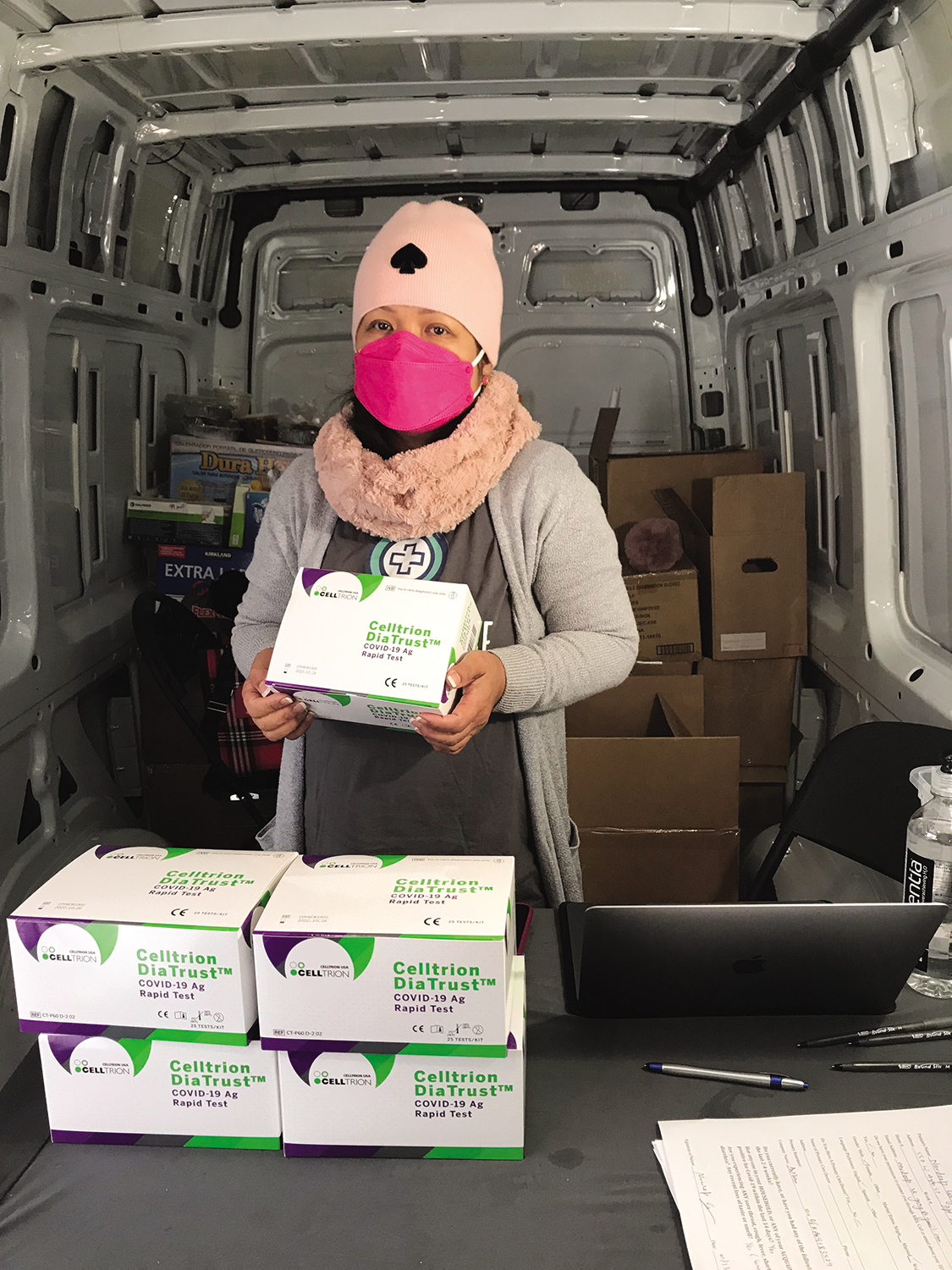
This drives back to her point why testing is necessary, something that the New York Times feature on Tajonera focused on: “Test, test, test, test and test some more.”
“This is the best thing to stop the spread. You have to realize that the vaccine is not really a cure. It’s just another layer of protection. So it’s like me wearing a mask and also, sanitizing and social distancing,” she explained. “You could still get a virus with the vaccine, but at least you’re a little bit more protected, and also to minimize the hospitalization and also the other effects of COVID.”
The Times article is more than a source of pride for this Filipina from Mindoro. She shared that they have received congratulatory calls from Texas, California, Florida, and the Philippines as well.
“Nakakatuwang isipin na may effect siya. At least, more people now realize that testing is key,” she said.
Tajonera laments the fact that almost two years into the pandemic that has killed almost 5.6 million people globally and almost 900,000 in the United States alone, there are still plenty of people who are hesitating in getting the vaccine.
She said she knows some anti-vaxxers personally and her best efforts to tell them about the benefits of the vaccine have fallen on deaf ears. She even had to let go of an employee from another office because she did not want to get vaccinated.
“It makes me sad that there are people like them. Some of them even tell me that there’s really no COVID-19,” she said.
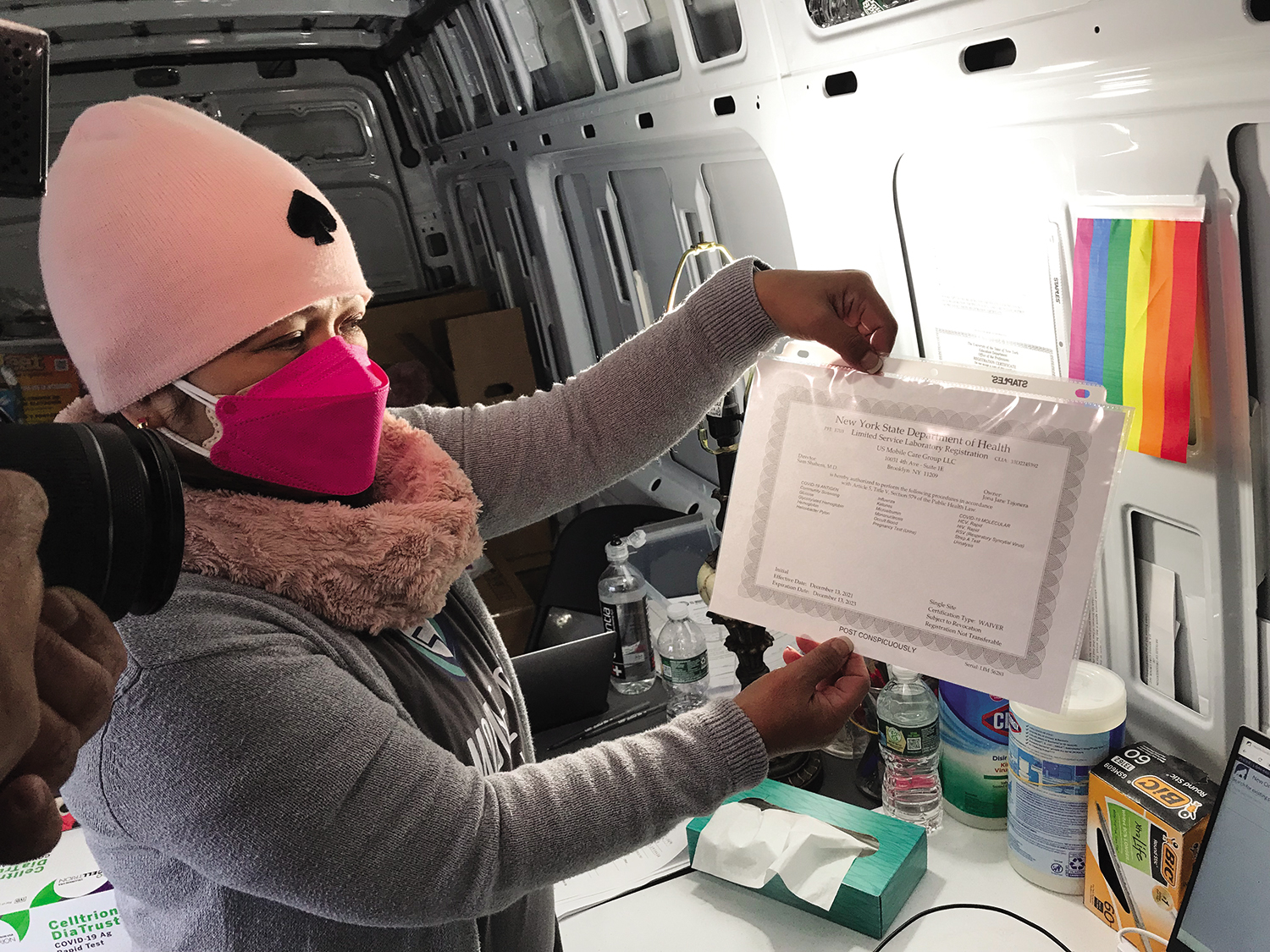
So instead of training her energy on them, Tajonera decided to focus on the things that she can do from within. Her next move is more about the long-term both for her and the clients they hope to help navigate the effects of long COVID.
Her advocacy does not stop in testing since she wants to extend her company’s services to clients who test positive, particularly the patients who may have developed long COVID or the long-term problems brought about by getting infected.
Some of these patients may have developed cardiology, respiratory and gastroenterology problems or pain management and mental health issues. She has built a strong team of doctors and specialists, including a mental health counselor, as she takes her idea to the next level.
“My goal is to get mobile urgent care van that can go around or we can actually go in one location, do some testing, like EKG and sonogram that we can do in the van so the patient doesn’t have to go all the way to anywhere else,” Tajonera said.


